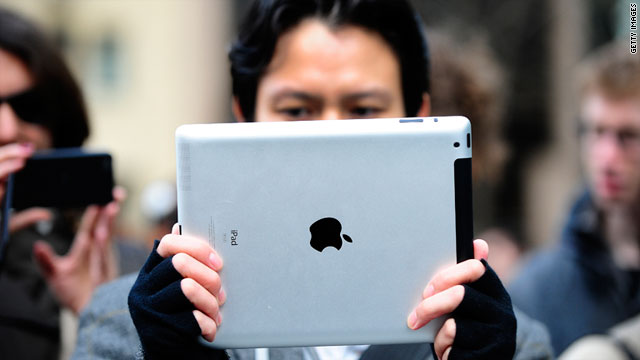US 'to tone down role in Libya

President Barack Obama has said the US will transfer its leading role on Libya "within days" to ensure the burden of enforcing a UN resolution against Colonel Muammar Gaddafi is shared.
He said Nato would play a co-ordinating role but differences remain within the organisation, with France and Turkey opposed to Nato taking the lead.
The UN resolution was passed to protect civilians from Col Gaddafi's forces.
Fighting continues, with anti-aircraft fire heard in Tripoli late on Monday.
It followed large explosions, which some reports said had come from the direction of a Gaddafi compound that was hit the previous night. Libyan television reported "several new attacks".
A Libyan government spokesman, Ibrahim Musa, said "many people" had been killed in an air attack on Sirte airport, although the report cannot be confirmed.
Fierce fighting was also reported in Misrata, 200km (130 miles) east of Tripoli, with rebels saying there had been a four-day bombardment by pro-Gaddafi forces and a number of deaths.
'Full burden'President Obama, speaking on a visit to Chile, said that once the initial goals had been achieved there would be a "transition taking place in establishing the no-fly zone" that would come "within a matter of days, not weeks".
"We will be one of the partners among many," Mr Obama said.
"Obviously, the situation is evolving on the ground, and how quickly this transfer takes place will be determined by the recommendation of our commanding officers that the first phase of the mission has been completed," he said.
Mr Obama pointed to past events when the US had acted "unilaterally and without full international support" and had "ended up bearing the full burden".
He said Nato would play a co-ordinating function but he said he would leave it to the Chairman of the Joint Chiefs of Staff, Adm Mike Mullen, to describe later how the transfer would take place.
In Russia, visiting US Defence Secretary Robert Gates also said the US would soon reduce its participation in the coalition operation.
But after a meeting in Brussels, Nato appeared not to have resolved differences over how to proceed.
Moving the operation under full Nato control would require the agreement of all 28 members.
The BBC's Chris Morris in Brussels says Turkey and Germany have been reluctant for Nato to assume control, and France is not keen.
For varying reasons they are all wary of criticism from the Arab world if Nato comes to the fore, he says.
French Foreign Minister Alain Juppe said Arab countries did not want the operation to be placed completely under Nato control, but he said he expected Nato to agree to play a supporting role within the next few days.
Italy has said it could take back its offer of military bases if Nato does not take control.
"It's important that the command passes to Nato with a different co-ordination structure than what we have now," Prime Minister Silvio Berlusconi said.
And British PM David Cameron said the campaign would benefit from "Nato's tried and tested machinery in command and control".
'Limited in scope'Earlier on Monday the coalition had sought to clarify whether Col Gaddafi was considered a military target.
It came after his sprawling Bab al-Aziziya complex in Tripoli was hit in an overnight air attack.
On Sunday UK Defence Secretary Liam Fox had said targeting Col Gaddafi could "potentially be a possibility".
But the head of the US Africa Command Gen Carter F Ham said attacking Col Gaddafi was not part of his mission.
And Mr Cameron told MPs that while he still wanted Col Gaddafi to go, the UN resolution was "limited in scope" and "explicitly does not provide legal authority for action to bring about Gaddafi's removal from power by military means".
The UN document, approved by the Security Council last week, authorises "all necessary measures" to protect civilians from pro-Gaddafi forces - including a no-fly zone.
No daytime coalition military strikes were reported on Monday, though overnight 10 to 12 missiles were fired.
Between 70 and 80 coalition sorties were flown on Monday.
Gen Ham said there was "no intent to destroy completely the Libyan military".
But he added: "If they stop and take up defensive positions, we can attack. It depends on where they are and what their intentions are. If they attack civilians, it is within our mandate to attack them."
But Gen Ham said there had been no direct co-ordination with anti-Gaddafi rebels.
He also said the no-fly zone would soon expand to cover a 1,000km (620-mile) area.
The coalition's action against Col Gaddafi began on Saturday with French air strikes in the east.
On Monday evening, fierce anti-aircraft fire followed the sound of explosions from near the Gaddafi compound in Tripoli but there were no further details.
Other reported coalition strikes (unconfirmed) on Monday evening:
- Witnesses told Agence France-Presse a navy base at Bussetta, 10km east of the capital, had been hit by a bombardment
- Allied bombers attacked the southern Gaddafi stronghold of Sebha, government officials said
- Gaddafi forces shelled the western town of Zintan, witnesses said
In Misrata, a city that has been under siege by government troops, rebel spokesmen said pro-Gaddafi forces were using "overwhelming firepower" and had bombarded the city for a fourth day.
Separate rebel spokesmen said there had been between nine and 11 deaths at the hands of pro-Gaddafi forces.
Col Gaddafi has ruled Libya for more than 40 years. An uprising against him began after the long-time leaders of neighbouring Tunisia and Egypt were toppled.





